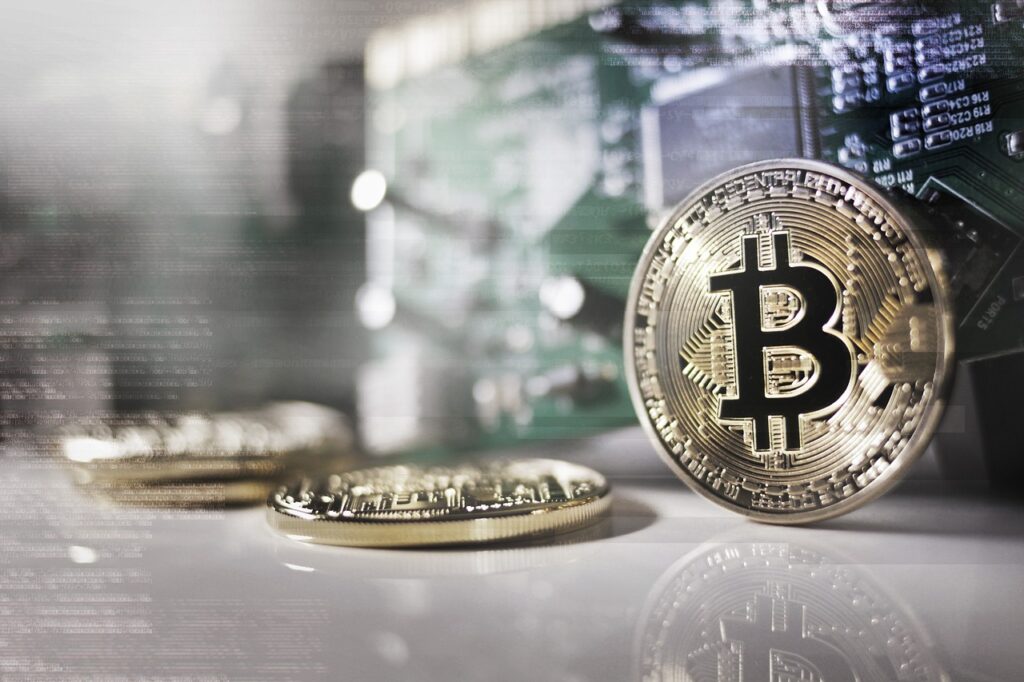Decentralized Finance Architecture Trends in [Year]: What’s Emerging
Decentralized Finance Architecture Trends in [Year]: What’s Emerging

The Evolution of DeFi: Exploring the Latest Developments in Financial Architecture
Decentralized Finance (DeFi) has rapidly transformed the traditional financial architecture, unlocking a multitude of possibilities for users around the globe. In recent years, we have witnessed a dynamic and ever-evolving DeFi ecosystem, with new developments and technologies constantly reshaping the way we think about financial transactions. One of the most notable advancements in DeFi is the concept of smart contracts, which are self-executing agreements programmed with predefined conditions. By eliminating the need for intermediaries, smart contracts enhance transparency and allow for seamless transactions, making them a fundamental building block in the world of decentralized finance.
Moreover, the rise of decentralized exchanges (DEXs) has further revolutionized the way individuals trade and interact with cryptocurrencies. Unlike traditional exchanges that rely on central authorities, DEXs operate on blockchain networks, ensuring security, privacy, and trustlessness. With DEXs, users can directly trade and exchange digital assets in a peer-to-peer manner, bypassing lengthy verification processes and reducing fees.

The Rise of Peer-to-Peer Lending: How DeFi is Revolutionizing Borrowing and Lending
In the world of traditional finance, borrowing and lending have long been dominated by banks and financial institutions. However, with the rise of decentralized finance (DeFi), a revolutionary shift is taking place. DeFi is now empowering individuals to engage in peer-to-peer lending, completely reshaping the borrowing and lending landscape.
One of the key drivers behind this transformation is the utilization of smart contracts on blockchain networks. These self-executing contracts remove the need for intermediaries, allowing borrowers and lenders to interact directly with each other. By leveraging DeFi platforms, individuals can now lend their digital assets to others in a decentralized manner, earning interest on their holdings and providing much-needed liquidity to borrowers. This innovative approach not only eliminates the need for traditional banks, but also opens up lending opportunities to a wider audience, creating a more inclusive financial ecosystem.
Unleashing the Power of Smart Contracts: A Closer Look at DeFi’s Automated Financial Agreements
Decentralized Finance (DeFi) has ushered in a new era of financial architecture, powered by smart contracts. These automated financial agreements have the potential to revolutionize the way we transact, eliminating the need for intermediaries and enabling trustless financial interactions. By leveraging blockchain technology and programmable code, DeFi smart contracts are unlocking a whole new level of efficiency and transparency in the realm of finance.
One of the key advantages of smart contracts in DeFi is their ability to execute transactions automatically, removing the reliance on centralized entities. Built on blockchain platforms like Ethereum, smart contracts enable users to define and enforce the rules of a financial agreement, ensuring that transactions are executed as intended without the need for manual intervention. This not only streamlines processes but also eliminates the possibility of human error or fraud. With smart contracts, financial agreements can be coded to trigger automatic payments, collateral releases, or any other actions as predetermined by the participating parties. The power lies in the self-executing nature of these agreements, which operate according to predefined conditions and parameters.
The Role of Decentralized Exchanges in the DeFi Landscape: Redefining Traditional Trading
Decentralized exchanges (DEXs) have emerged as a disruptive force in the decentralized finance (DeFi) landscape, redefining how traditional trading takes place. Unlike centralized exchanges that rely on a central authority to facilitate transactions, DEXs operate on a peer-to-peer basis, allowing users to trade directly with each other. This removes the need for intermediaries and creates a trustless environment where users have full control over their funds.
One of the key benefits of DEXs is their ability to enhance financial privacy and security. By leveraging smart contracts on blockchain networks, DEXs eliminate the need for users to deposit funds with a centralized third party. Instead, trades occur directly on the blockchain, ensuring that users retain ownership and control of their assets at all times.

DeFi Insurance: Safeguarding Investments in a Trustless Environment
DeFi insurance has emerged as a critical aspect of the decentralized finance ecosystem, addressing the need to safeguard investments in a trustless environment. In traditional finance, insurance acts as a safety net, providing protection against unforeseen events. Similarly, in the realm of DeFi, insurance protocols aim to mitigate risks and protect users’ funds from potential hacks, vulnerabilities, and smart contract failures.
One key advantage of DeFi insurance is its trustless nature. Unlike traditional insurance, which relies on centralized intermediaries, DeFi insurance leverages smart contracts and decentralized platforms to facilitate the process. This eliminates the need for a middleman and increases transparency, ensuring that claims and payouts are executed automatically and without the possibility of manipulation. In this way, DeFi insurance not only provides peace of mind to users but also fosters a more secure and resilient financial ecosystem.
Enhancing Liquidity with Yield Farming: Maximizing Returns in the DeFi Ecosystem
Yield farming has emerged as a popular strategy within the decentralized finance (DeFi) ecosystem, allowing users to maximize their returns by providing liquidity to various protocols. The concept behind yield farming is relatively simple: users lock up their assets in liquidity pools and are rewarded with additional tokens. These tokens can be sold or staked for further rewards, creating a cycle of compounding returns.
One of the main advantages of yield farming is its potential to generate passive income. By leveraging idle assets, individuals can earn interest or additional tokens without actively trading or speculating on price movements. This makes yield farming a particularly attractive option for those looking to grow their assets in a low-maintenance and hassle-free manner. However, it’s important to note that yield farming does come with its risks, including impermanent loss and smart contract vulnerabilities, highlighting the need for thorough research and careful consideration before participating in any yield farming opportunities.
DeFi Oracles: Bridging the Gap between On-Chain and Off-Chain Data Sources
DeFi Oracles play a crucial role in bridging the gap between on-chain and off-chain data sources in the decentralized finance ecosystem. These oracles serve as intermediaries, providing smart contracts with access to real-world data that is necessary for executing various financial agreements. Their primary function is to fetch and verify data from external sources, ensuring its accuracy and reliability before feeding it to smart contracts.
One of the main challenges faced by DeFi platforms is the lack of access to reliable and timely information from the outside world. This is where oracles come into play, enabling smart contracts to interact with off-chain data in a trustless manner. By sourcing data from various providers and aggregating it into a single feed, oracles enable DeFi applications to access real-time data on prices, market conditions, and other relevant information. This capability is critical for the functioning of decentralized exchanges, lending platforms, prediction markets, and other DeFi applications that rely on accurate data for their operations.
The Emergence of Stablecoins: Stable Value in a Volatile Crypto Market
Stablecoins have emerged as a game-changer in the volatile world of cryptocurrencies. Designed as digital assets pegged to a stable value, stablecoins offer a unique solution to the problem of price volatility that has plagued many cryptocurrencies. By providing stability, stablecoins aim to bridge the gap between traditional finance and the decentralized world of cryptocurrencies.
The emergence of stablecoins has brought numerous benefits to the crypto market. Firstly, stablecoins offer a reliable store of value, immune to the wild price swings seen in other cryptocurrencies. This stability provides users with confidence, making stablecoins an attractive option for both individuals and businesses seeking to transact in a stable digital currency. Furthermore, stablecoins facilitate easier and faster cross-border transactions, eliminating the need for traditional intermediaries and reducing transaction costs. With more stability and efficiency, stablecoins have the potential to revolutionize the way we transact and interact with cryptocurrencies.
Exploring Decentralized Identity: Privacy and Security in DeFi Transactions
In the world of decentralized finance (DeFi), where transactions are conducted on blockchains, privacy and security play a crucial role. With the increasing popularity of DeFi platforms, individuals are seeking innovative solutions to protect their identities while engaging in transactions. Decentralized identity (DID) emerges as a potential game-changer, offering enhanced privacy and security to users.
DID allows individuals to have full control over their personal data while participating in DeFi transactions. Unlike traditional systems where identification is often tied to a centralized authority, DID leverages blockchain technology to provide users with a self-sovereign identity. This means that individuals can manage and share their personal information on a need-to-know basis without relying on a third-party for identity verification. By eliminating the need for intermediaries, DID offers a higher level of privacy and security, ensuring that sensitive data remains under the control of the users themselves.
• DID allows individuals to have full control over their personal data
• DID leverages blockchain technology to provide users with a self-sovereign identity
• Individuals can manage and share their personal information on a need-to-know basis without relying on a third-party for identity verification
• By eliminating the need for intermediaries, DID offers a higher level of privacy and security
• Sensitive data remains under the control of the users themselves
The Future of DeFi: Predictions and Challenges for the Next Era of Decentralized Finance.
In the ever-evolving landscape of decentralized finance (DeFi), predictions abound as to what the future holds for this groundbreaking technology. One prediction is the continued growth and adoption of DeFi applications, fueled by the increasing demand for financial services that operate free from traditional intermediaries. As more individuals recognize the advantages of instant, borderless transactions and greater financial inclusivity, the DeFi ecosystem is poised to expand exponentially.
However, with growth comes challenges. One of the main hurdles facing DeFi is the issue of scalability.

What is DeFi?
DeFi stands for decentralized finance, which refers to the use of blockchain technology and smart contracts to provide financial services in a decentralized manner, without the need for intermediaries like banks.
How has DeFi evolved over time?
DeFi has undergone significant evolution, with advancements in financial architecture, peer-to-peer lending, smart contracts, decentralized exchanges, insurance, liquidity farming, oracles, stablecoins, and decentralized identity. These developments have expanded the possibilities of DeFi in terms of accessibility, functionality, and security.
How does DeFi revolutionize borrowing and lending?
DeFi enables peer-to-peer lending, eliminating the need for traditional banks as intermediaries. Borrowers can access loans directly from other users, offering more efficient and inclusive lending options.
What are smart contracts, and how do they contribute to DeFi?
Smart contracts are self-executing contracts with the terms of the agreement directly written into the code. In DeFi, smart contracts automate financial agreements, eliminating the need for intermediaries and ensuring trustless transactions.
How do decentralized exchanges redefine traditional trading?
Decentralized exchanges (DEXs) operate on blockchain networks and allow users to trade cryptocurrencies directly with each other. DEXs provide greater liquidity, increased security, and reduce the reliance on centralized exchanges.
How does DeFi insurance work?
DeFi insurance protects investments in a trustless environment by providing coverage against risks such as smart contract vulnerabilities, hacks, or system failures. It ensures that users have a safety net for their assets within the DeFi ecosystem.
What is yield farming, and how does it enhance liquidity in DeFi?
Yield farming involves lending or staking cryptocurrencies to earn rewards. By maximizing returns through various DeFi protocols, it incentivizes users to provide liquidity, boosting the overall liquidity of the DeFi ecosystem.
What role do DeFi oracles play in bridging on-chain and off-chain data sources?
DeFi oracles act as intermediaries between the blockchain and external data sources. They provide reliable and verified information to smart contracts, enabling DeFi applications to interact with real-world data in a secure and decentralized manner.
What are stablecoins, and how do they provide stability in the volatile crypto market?
Stablecoins are cryptocurrencies designed to maintain a stable value, usually pegged to a fiat currency or a commodity. They offer stability in the volatile crypto market, allowing users to hedge against price fluctuations and facilitate easier transactions.
How does decentralized identity enhance privacy and security in DeFi transactions?
Decentralized identity in DeFi ensures that users can maintain their privacy while securely participating in financial transactions. It enables users to control their own identity data, reducing the risk of data breaches and identity theft.
What are some predictions and challenges for the future of DeFi?
The future of DeFi holds great potential, but it also faces challenges. Some predictions include increased regulation, scalability issues, user adoption, and finding solutions to security vulnerabilities. Overcoming these challenges will be crucial for the next era of decentralized finance.
Todays Featured Product:
Buy, exchange and grow your crypto securely with a Ledger hardware wallet, combined with the Ledger Live app. It’s never been easier to keep your crypto safe and accessible. Buy direct from Ledger.com and get todays Special Offers Here.




